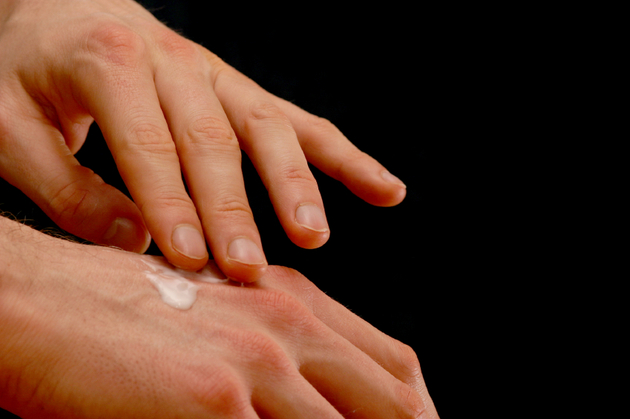Using Coconut Oil for Cooking, Personal and Medicinal Needs.
Coconut oil in cooking was once considered taboo by many in the food and health industries because the oil is high in saturated fats. That perspective is changing and uses for it in cooking are evolving daily. At room temperature, coconut oil takes on a solid form and can be a replacement for butter in many recipes. When heated up, it becomes a liquid and is ideal oil for frying foods.
The uses for coconut oil in baked goods are unlimited. In its solid form, it can replace butter and shortening in a wide variety of recipes. Surprisingly, it can turn out flaky pie crusts, fluffy cake icings and crumbly scones. This has strong appeal to vegans who don’t use butter. It is also an acceptable replacement for olive oil and can be used for pound cakes and the like.
Using coconut oil in lieu of other oils for frying leaves foods with a rich, almost nutty taste. Some people are able to really taste the coconut when eating foods fried with it. Some items that fry well in coconut oil are fish, potatoes, batter-dipped vegetables and doughnuts. Some of the advantages of frying with this oil are that the oil drains away from foods more thoroughly, leaving food crisper and less soggy. It also lasts longer than other oils and can be used over and over again in deep frying.
Because of its sweet taste, coconut oil is perfect for use in making candy. The sweetness mixes well with many baked goods and pastries, too. It can be drizzled on roasted vegetables for a unique flavor enhancement. Try it on toast in lieu of butter. The tropical taste works well with most Thai and Indian recipes. One of the many uses for it is in salad dressing. A blend of equal parts coconut oil and olive oil drizzled on greens is delectable. You can add some sea salt and red wine vinegar for flavor contrasts. There is one thing to be careful of though. If the dressing is cold or the salad is cold, the oil in the dressing can harden. It is best to combine small amounts and keep it at room temperature. Virgin coconut oil is better than the refined varieties which can comprise impurities. Those impurities required bleaching, deodorizing and refining to make the product suitable for use. Cooking is simply one of a number of the many uses for coconut oil.
Non-cooking uses for coconut oil vary and cross into personal use as well as even industrial applications. It’s versatility makes coconut highly adaptable and yet not many people are even aware of it. In tropical parts of the world, the value of it has been appreciated for generations and has been an important part of the daily diet. The oil is an splendid moisturizer for dry and damaged hair. When applied directly to the hair and left for about 15 minutes before shampooing, the hair has a luxurious radiance. It can also be added to homemade shampoos, hair pomades and conditioning oil treatments. Another personal uses for the oil is the treatment of skin. It works wonders for softening and healing dry and damaged skin. Coconut oil helps first by forming a protective barrier on skin that helps retain moisture. Secondly, it penetrates deeply to help keep connective tissues supple and firm. Because it is readily absorbed into the skin, the oil helps enhance the appearance of fine skin lines and minimizes the appearance of wrinkles. Lastly, coconut oil assists in the exfoliation process which is the removal of dead skin cells from the outer layer of skin, leaving smoother skin behind.
Rubbing a small amount of coconut oil around the temple area of the head, for example, can help reduce stress. Massage the oil using small circular motions and let the aroma sooth your stress away. The saturated fats in the oil can help with the digestive process. It contains anti-bacterial properties which can help with controlling parasites and fungi which can cause digestive problems like irritable bowel syndrome and indigestion. Coconut oil also helps the body absorb amino acids, minerals and vitamins more efficiently. When applied to scrapes and cuts, it forms a protective barrier that keeps potential infection down by shielding the wound from virus, bacteria and dust. It speeds the recovery of bruises because it helps repair damaged tissue. When added to the diet, coconut oil can help balance hormones and induce the thyroid, it increases your metabolic rate which in turn increases energy and can lead to weight loss.
Want to find out about other uses for coconut oil, then visit Peter Smith’s site and get more details on coconut oil benefits for your needs.
-
What You Should Know About Abnormal Weight Loss
If you have suffered from abnormal weight loss, more than likely there
-
How To Naturally Turn Your Slow Metabolism Into A Fast Fat Burning Machine
When Thanksgiving, Christmas, and other holidays come around where I e
-
Stabilizing Your Blood Sugar, Fiber and Losing Weight
Its not so difficult to lose weight, if
-
How to Get Focused to Lose Weight
It can be thrilling to lose weight. You need to get rid of old habits
-
Free Diets For Quick Weight Loss
The definition of diet in nutrition science is the total sum of food c
-
How To Stop Being Mean To Yourself About Your Weight (Seriously!)
- DON'T MISS
- Got Cravings? How to Stop Them Controlling Your Life
- The Exact Reason Why Cardio Is Essential Avoiding The Starvation Response
- Quick Weight Loss Tips - Things You Should Know About Weight Loss Success
- 7 Tips To Eat Healthy At Weddings
- Rapid Fat Loss - 3 Best & Right Ways For Rapid Fat Loss
- Tricks That Make Weight Loss More Fun
- How Do Solar Panels Work - Magic ? -
- Close Kept Secrets To Weight Loss Lesson 15
- Use These Vital Strategies To Maximize Your Fitness
- Which is better for weight loss — cutting calories or increasing exercise?




